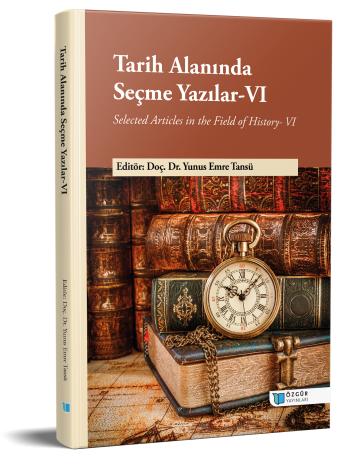
Memlûk Sultanlarının Köle Kimlikleri ve Bunun Memlûk Diplomasisine Yansıması
Şu kitabın bölümü:
Tansü,
Y.
E.
(ed.)
2023.
Tarih Alanında Seçme Yazılar-VI.
Özet
İnsanın köleleştirilmesi, mevcut tüm tarihi toplum ve kültürlerde varlık göstermiştir. Türk dilinde köle ismini ifade eden farklı kelimeler mevcuttur. Bunlar, kul, bende, halayık, esir ve kadın köleler için cariye ve odalık kelimeleridir. Bunlarla beraber çeşitli milletlerde de köle kelimesini karşılayan farklı isimler görülmektedir. Bu çalışmanın amacı, Memlûklerin köle geçmişinin/kimliğinin onların diplomasilerine nasıl yansıdığını ve bunun nedenlerini ortaya koymaktır. Konunun bağlamında devletin tarihine bir bütün olarak bakıldığı zaman, Memlûklerin köle geçmişlerinin Sultan Baybars döneminden az evvel, onun döneminde ve biraz daha ileri bir tarihte, İlhanlılar ile Ermeniler arasında gerçekleştirilen diplomasi faaliyetlerine yansıdığını görmekteyiz. Memlûk Sultanları, hiç şüphesiz Sultan olmadan evvel memlûk (köle) idiler. Ancak efendisi tarafından azat edilen bir köle artık köle sayılmaz. Köle kimliğinden sıyrılmayan kimse de Sultan olamaz. Nitekim iktidarın sahibi hiçbir Sultan, tahta köle olarak oturmamıştır. Bizim konumuzu oluşturan Memlûklerin asıllarının adı, teknik açıdan köle manasına gelse de esasında esir veya aşağı seviyede bir anlamdan ziyade güç ve üstünlük manasında bir anlam ile tarih içerisinde yerini almıştır. Konuyu ele aldığımız zaman aralığı; Memlûklerin Mısır’da ve Suriye’de Eyyûbilerin nüfuzlarına son verdikleri ve devletlerinin temellerini sağlam bir şekilde oturtmaya başladıkları dönemdir. Orta Çağ’da bu zamanlarda memlûk sistemi, yaygın olarak kullanılmaktaydı. Öyle ki bugünün kölesi yarının sultanı anlayışı mevcuttu. Memlûkler, geçmişte köle olmaları sebebiyle hiçbir zaman utanç duymamışlardır. Nitekim onlar, kendilerini güçleri ve maharetleriyle ortaya koyup, bu yolla üst düzey görevlerde yer alabilmeyi, asil bir soydan gelerek elde etmiş olmaktan daha geçerli bulmuşlardır. Öyle ki Memlûklerde, köle kimliğine sahip olmayanlar istisnası olmakla beraber ne üst düzeyde bir görevli ne de sultan olabilirdi. Memlûklerin aksine Moğollar ise, soya, soyluluğa fazlasıyla önem vermekteydi.

